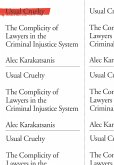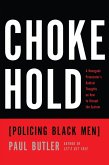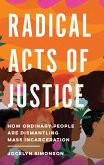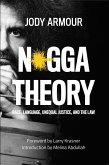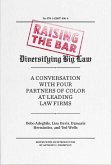From the prizewinning rising legal star, the deeply researched and definitive book on the way the media and police distract us from what matters
"Copaganda," as defined by Alec Karakatsanis, describes a special kind of propaganda that affects who and what we fear and what kinds of social investments we support to address our fears. At a time when the United States incarcerates five times more people per capita than its own historical average and five to ten times more people per capita than other countries, its vast punishment bureaucracy spends huge amounts of time and money manipulating the rest of us to see the world from its point of view.
As a result, we see a grossly distorted version of crime, punishment, and safety in our newspapers, magazines, and other media outlets. The news generates fear by focusing on crimes committed by the most marginalized people while ignoring far more serious threats to our collective well-being, from wage theft by corporations to environmental crimes to the deaths that result from cigarette smoke (which make the number of violent crimes pale in comparison). And it falsely suggests that the best way to respond to our fear is to increase government repression through police, prosecution, and prisons as opposed to addressing the root causes of interpersonal harm.
In the spirit of such classics as Noam Chomsky's Manufacturing Consent, Copaganda includes chapters on "What Is News?," "Public Relations Spending by the Police," "Whose Perspective? How Sources Shape News," "How the News Uses Experts," "How to Smuggle Ideology into the News," and "Academic Copaganda."
Already called "one of the most prominent voices on [copaganda]" (Teen Vogue), with a huge following on social media and appearances discussing copaganda on The Daily Show with Trevor Noah and The Breakfast Club, Karakatsanis brings a legal eye, humor, gripping personal stories, and a keen ability to read between the lines to a topic at the forefront of one of the most pressing public debates in our society.
"Copaganda," as defined by Alec Karakatsanis, describes a special kind of propaganda that affects who and what we fear and what kinds of social investments we support to address our fears. At a time when the United States incarcerates five times more people per capita than its own historical average and five to ten times more people per capita than other countries, its vast punishment bureaucracy spends huge amounts of time and money manipulating the rest of us to see the world from its point of view.
As a result, we see a grossly distorted version of crime, punishment, and safety in our newspapers, magazines, and other media outlets. The news generates fear by focusing on crimes committed by the most marginalized people while ignoring far more serious threats to our collective well-being, from wage theft by corporations to environmental crimes to the deaths that result from cigarette smoke (which make the number of violent crimes pale in comparison). And it falsely suggests that the best way to respond to our fear is to increase government repression through police, prosecution, and prisons as opposed to addressing the root causes of interpersonal harm.
In the spirit of such classics as Noam Chomsky's Manufacturing Consent, Copaganda includes chapters on "What Is News?," "Public Relations Spending by the Police," "Whose Perspective? How Sources Shape News," "How the News Uses Experts," "How to Smuggle Ideology into the News," and "Academic Copaganda."
Already called "one of the most prominent voices on [copaganda]" (Teen Vogue), with a huge following on social media and appearances discussing copaganda on The Daily Show with Trevor Noah and The Breakfast Club, Karakatsanis brings a legal eye, humor, gripping personal stories, and a keen ability to read between the lines to a topic at the forefront of one of the most pressing public debates in our society.
Dieser Download kann aus rechtlichen Gründen nur mit Rechnungsadresse in A, D ausgeliefert werden.



